Have you ever wanted to rid your yard of pesky weeds? Tenacity Herbicide, one of the most effective weedkillers, can help you out. However, though this product eliminates weeds, is it safe for pets? Don't worry; we have the answer for you in this article.
Tenacity Herbicide is entirely safe for pets once it has dried. However, it is not safe for pets to be in the yard while you are applying tenacity herbicide. Make sure your pets are not around you during application and only go into the yard once the herbicide is dry.
There is so much more to know about Tenacity Herbicide before using it. For example, what is its active ingredient? What kind of weeds does it kill? Is it safe for the environment? We answer these questions and more in this post! Keep reading to learn more about Tenacity Herbicide.
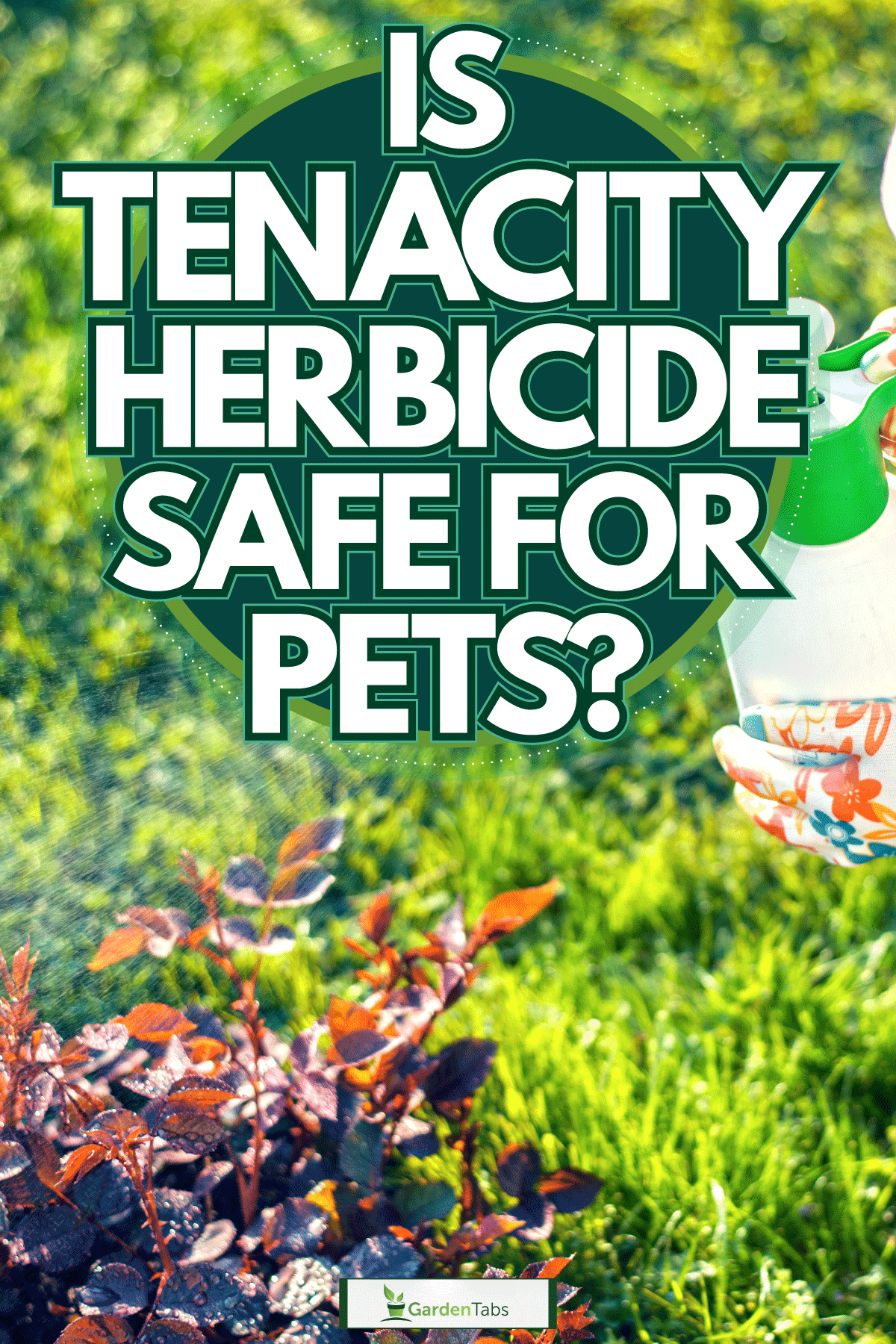
What Is Tenacity Herbicide Made Of?
The active ingredient in Tenacity Herbicide is mesotrione. Mesotrione, a synthetic compound, is derived from a naturally occurring compound that the bottlebrush plant produces.
This naturally occurring compound hinders photosynthesis in certain plant species, which is what prevents weeds from growing.
Is Tenacity Herbicide Organic?
Tenacity Herbicide is not organic. Organic pesticides do not contain synthetic products; they are made from all-natural ingredients.
As established, the main ingredient in tenacity is a synthetic compound, so the pesticide is not organic.
What Weeds Does Tenacity Herbicide Kill?
Tenacity Herbicide kills over 46 weeds and grasses. This makes it one of the most effective weedkillers there is! Some of the weeds that tenacity kills are crabgrass, ground ivy, nutsedge, and bentgrass.
Let's discuss these weeds more in-depth and why it's good that tenacity herbicide removes them.
Crabgrass
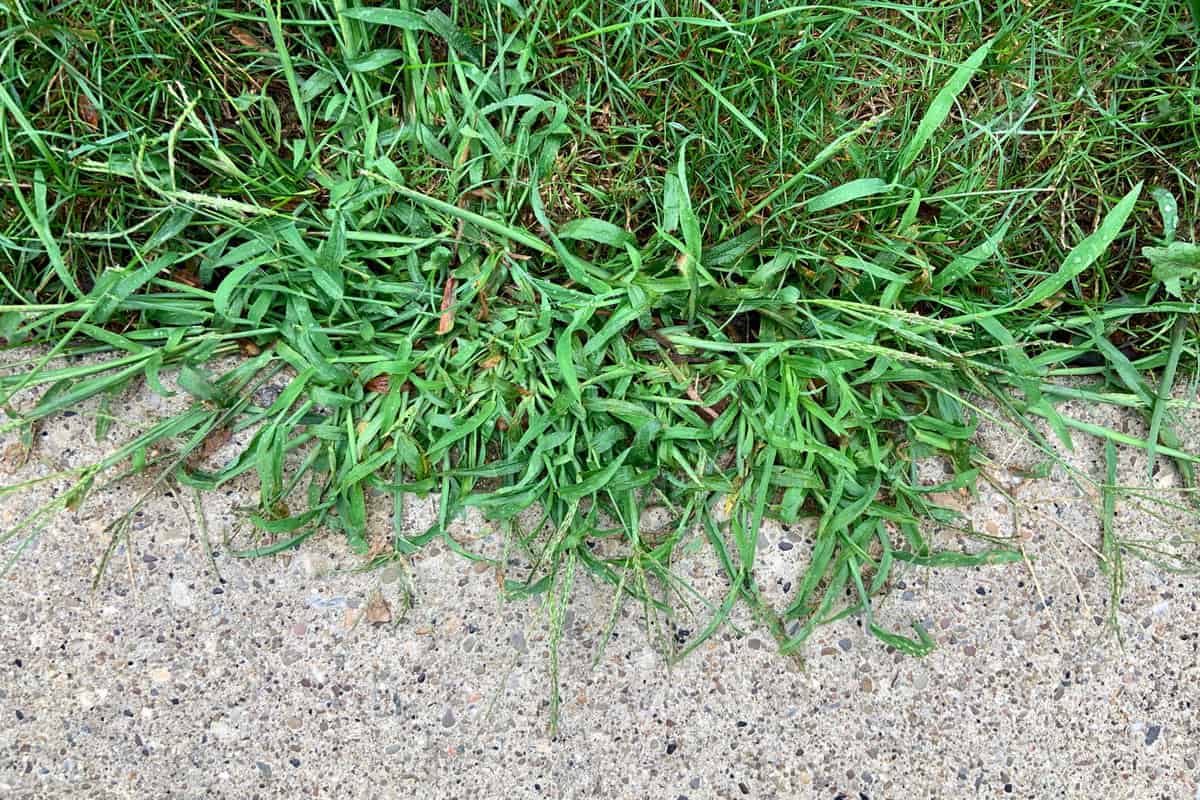
Crabgrass is a course, clumpy weed. Its presence gives lawns an unattractive appearance. However, that's not the only disadvantage that crabgrass presents.
Once crabgrass begins to grow on your lawn, it will completely take it over, hindering your yard from receiving essential nutrients.
So, it's great that Tenacity removes crabgrass, as lawns can grow healthy grass when crabgrass is gone.
Ground Ivy
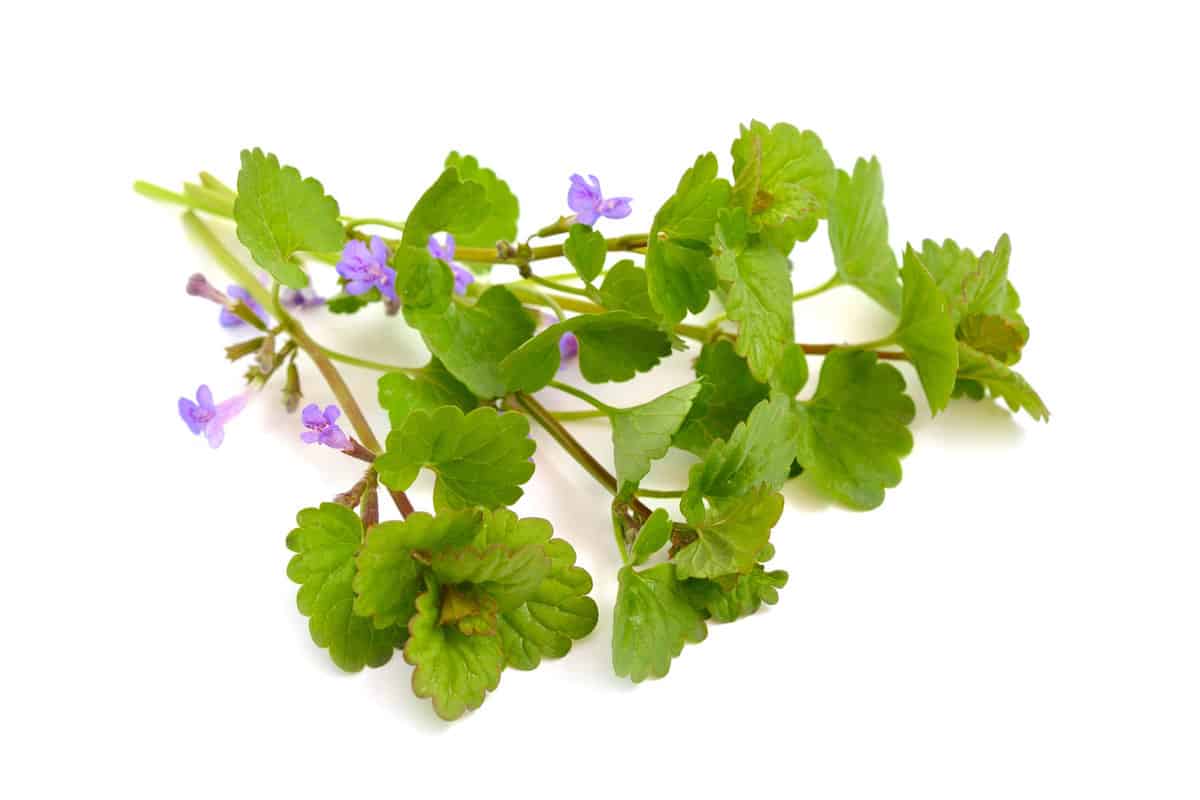
Ground ivy isn't as unsightly as crabgrass; it has green, heart-shaped leaves and purple flowers bloom from March to July.
However, even though ground ivy isn't as unattractive as crabgrass, it still has many harmful disadvantages.
Like crabgrass, ground ivy can quickly infest a lawn, driving out native plants. It is also lethal to some animals, including horses, and mildly toxic to other animals.
Nutsedge
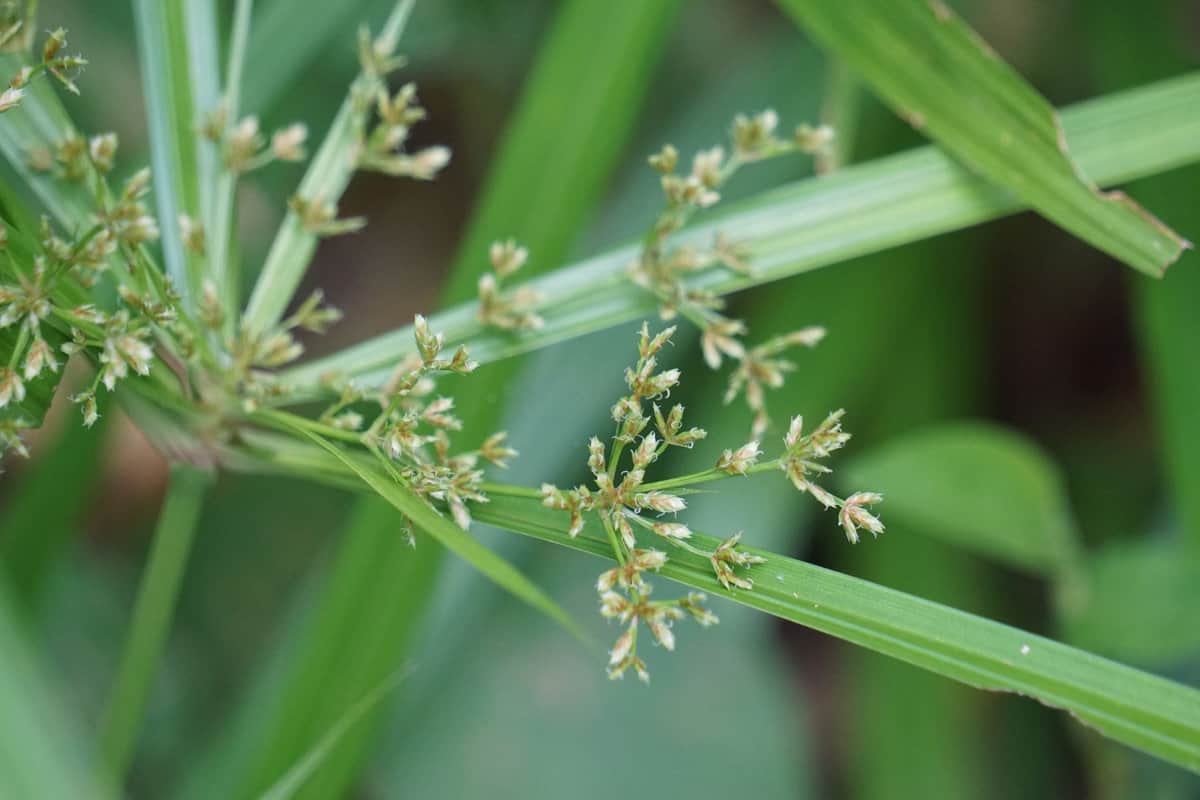
Like crabgrass and ground ivy, nutsedge can quickly infest yards, vegetable gardens, and flower beds. A nutsedge infestation gives yards a very messy appearance.
Some people try to pull nutsedge out of their yard to remove it. This method often doesn't work because the pulling activates dormant tubers in the nutsedge, causing the plant to spread.
So, it's necessary to use Tenacity Herbicide if you want to remove this pesky weed from your garden.
Bentgrass
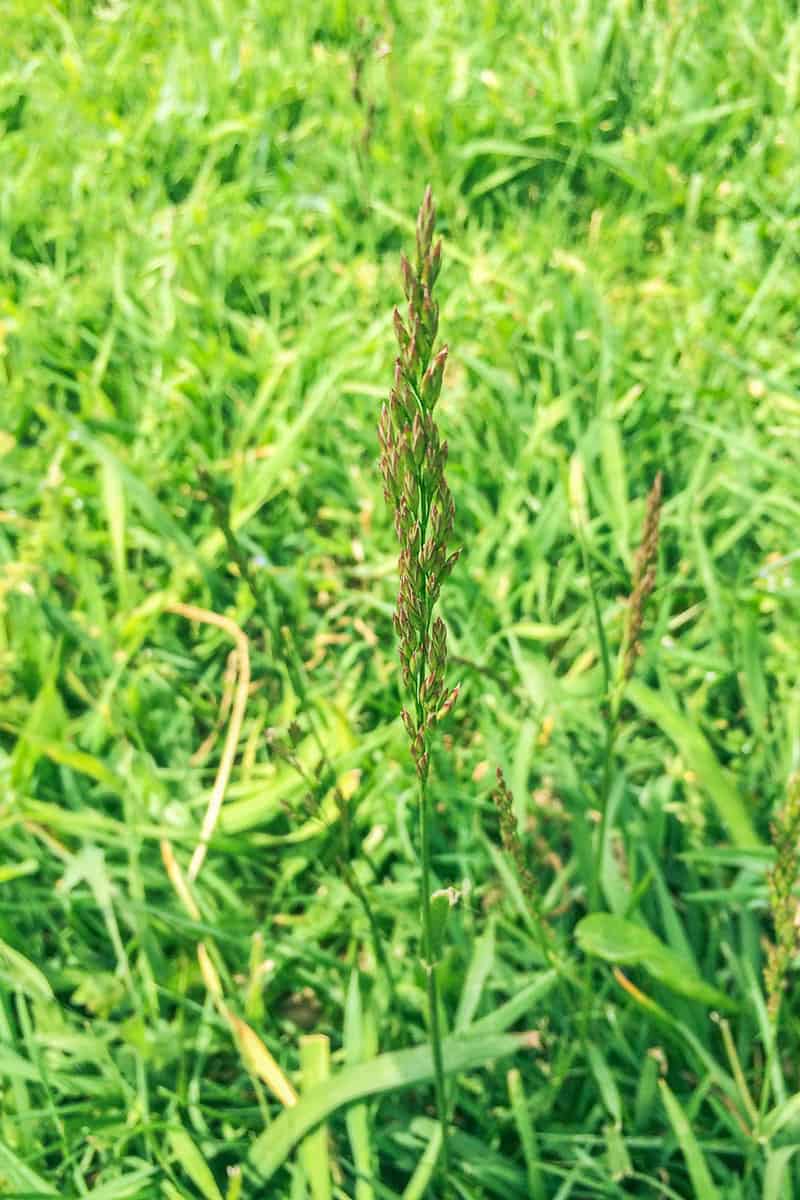
Some people see bentgrass as an attractive weed. However, bentgrass is known to outcompete other grasses and weeds in good growing conditioning.
This makes it an annoying weed that many people want to rid their yards of, so it's nice that tenacity herbicide can take care of it.
Is Tenacity Herbicide Safe For The Environment?
Tenacity Herbicide is pretty safe for the environment as a whole. The Environmental Protection Agency (EPA) has given it a reduced-risk status.
As a reduced-risk pesticide, Tenacity has to complete one of the following actions: reduce risks to humans, reduce risks to non-target organisms, decrease the chances of groundwater or surface water is contaminated, or make pest management strategies more effective and accessible.
Because the EPA categorizes Tenacity as "reduced-risk," it is better for the environment than other herbicides and pesticides that pose greater risks.
Can You Apply Tenacity Herbicide To Flower Beds And Vegetable Gardens?
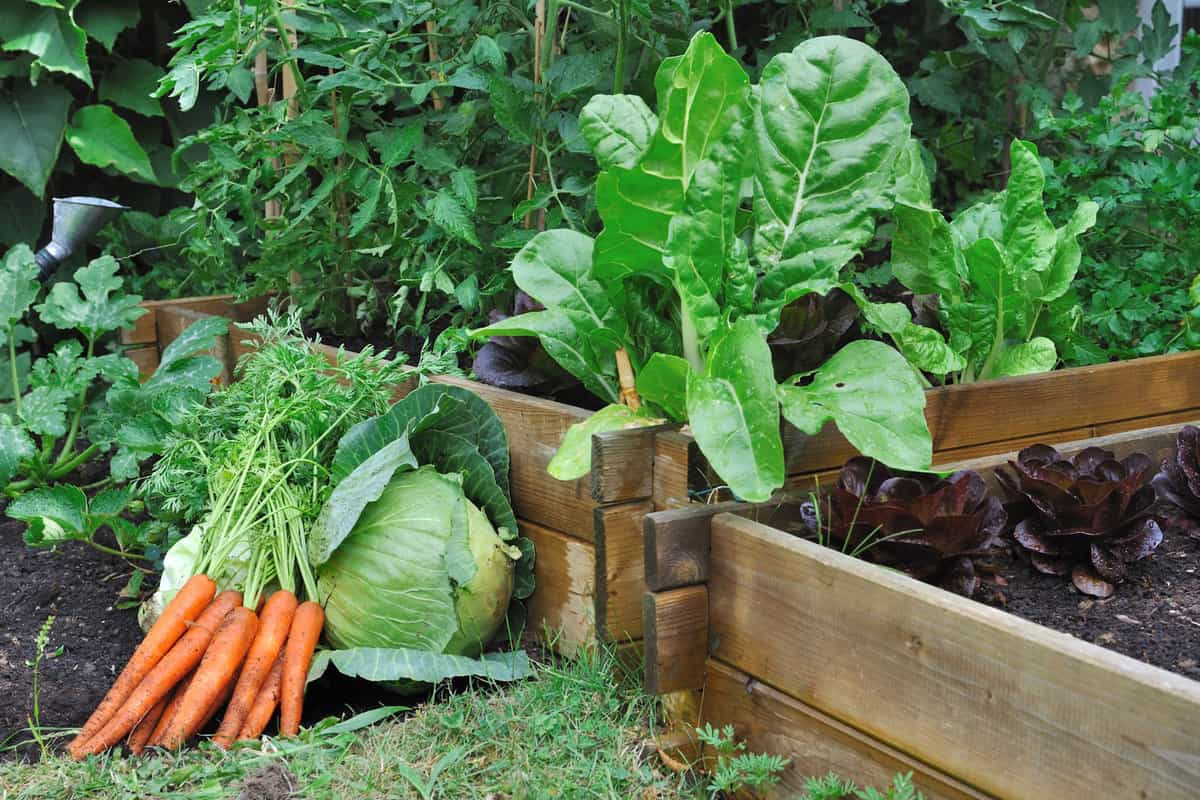
It's recommended that you don't apply Tenacity Herbicide to your flower beds. Doing so can harm the flowers. The product label even says to avoid over-spray onto flowers, so keep this in mind when using.
Similarly, you should not apply Tenacity to vegetable gardens or around edibles. If you do, you can harm yourself by ingesting the vegetables.
Does Rain Wash Away Tenacity Herbicide?
Rain will wash away Tenacity Herbicide immediately after application. Tenacity is, however, able to withstand rain an hour after application.
If you want to ensure that the rain will not wash away this herbicide, wait about 6 hours before applying it to your lawn.
When Should You Apply Tenacity Herbicide To Your Lawn?
One of Tenacity Herbicide's perks is that you can use it for pre-emergent and post-emergent applications. You should apply tenacity in the fall or early spring for pre-emergent applications.
For post-emergent applications, apply tenacity to growing weeds. 2 to 3 weeks after the initial post-application, you may have sprayed the weeds with Tenacity again.
When Should You Not Apply Tenacity To Your Lawn?
There are a few times when you shouldn't apply Tenacity to your lawn. You shouldn't use Tenacity when the temperature is above 90 degrees Fahrenheit.
Secondly, you shouldn't apply it on days when it may rain. As established, the rain will quickly wash the herbicide away. So, keep a good watch on the weather when you want to apply Tenacity Herbicide.
Should You Fertilize After Apply Tenacity Herbicide?

You shouldn't apply fertilizer to your lawn directly after spraying Tenacity. However, you should eventually fertilize your lawn. You should wait about 2 to 4 weeks before fertilizing after applying Tenacity or other herbicides.
In addition, the best time to fertilize is generally May or June, as these months encompass the growing season. So, keep that in mind when thinking of the best time to fertilize after applying an herbicide.
Should You Mow Before Applying Tenacity Herbicide?
Do not mow immediately before or after spraying your lawn with Tenacity. You should wait at least two days before or after spraying to mow your lawn.
Should You "Water In" Tenacity Herbicide?
"Watering in" a herbicide involves adding water to it. You should water in Tenacity Herbicide if it's a pre-emergent application. For pre-emergent applications, watering helps the herbicide work.
However, it's unnecessary to water in Tenacity if it's a post-emergent application.
Does Tenacity Herbicide Turn Grass White?
Tenacity does whiten grass and weeds. This is because it prevents chlorophyll production, which is the pigment in plants that gives them their green color.
It usually takes weeds about three weeks to whiten and die once you apply tenacity to them.
However, be careful not to spray tenacity onto good grass or other plants, as it may also cause these plants to whiten.
How Often Can You Spray Tenacity Herbicide?
The maximum amount of Tenacity Herbicide that you can spray each year is 16 ounces per acre. This means that you can spray your lawn with tenacity many times a year, as long you don't exceed 16 ounces per acre each year.
To Wrap Up
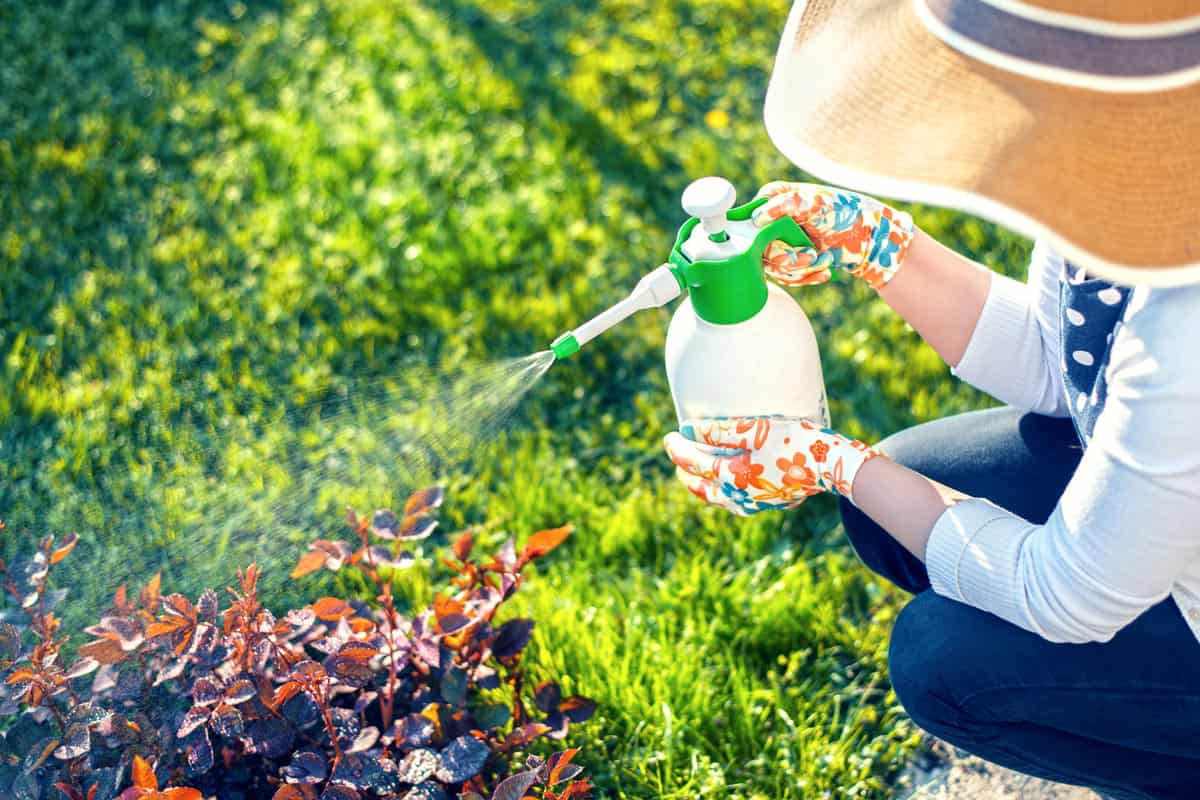
Tenacity Herbicide is a very effective weed killer safe for pets once it dries. It's also a very versatile weedkiller, killing over 46 weeds and grasses, and it's pretty safe for the environment.
However, remember that you should never apply this product to a flower bed or vegetable garden, as you could damage these plants.
In addition, keep in mind the guidelines regarding when you should mow and fertilize after applying Tenacity. Tenacity Herbicide can help keep your lawn beautiful if you use it correctly!
Before you go, check out some of our other articles:
